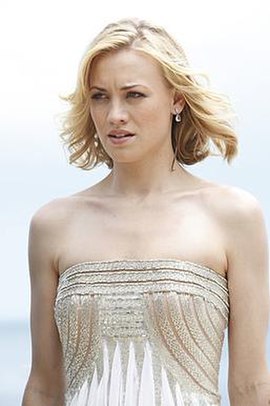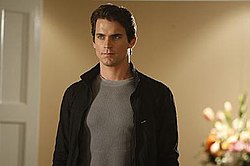Recently I read this article, and it CHANGED MY way of writing forever. So helpful for story structure, and world building. Read it, and then come back, or read this and then read that. Or just go read books, your call.
 EIGHT CHARACTER ARCHETYPES OF CHUCK.
EIGHT CHARACTER ARCHETYPES OF CHUCK.1. Protagonist: Chuck Bartowski. He is the Hero, the every man, and adorably played by Zachary Levi.
I actually thought I understood this one, but after thinking about the article, and analyzing my own writing, I've learned a lot about heroes. The Hero, doesn't have to be the view point character, (like in Sherlock Holmes) but the Protagonist is the one whose shoulders sits the story, the one who grows the most, and the one who is directly opposite the Antagonist.
The Protagonist needs to have a goal. In Harry Potter, Harry's goal is to defeat the guy who killed his parents. When choosing your Protagonist, its usually the one who battles the big bad at the end. In the end, it's Harry and Voldemort. But Chuck is a reluctant hero. He doesn't have large goals or ambitions, which is a character flaw, not a story flaw, but they had to balance this flaw by giving him small manageble goals.
Speaking of Which...
2. Antagonist: On the show, every episode is called Chuck verses the (insert Antagonist). Every episode has a beginning, middle, and end, because in every one Chuck battles something. A terrorist is going to attack at Chuck's sister's wedding. Chucks goal-- to stop terrorist from attacking at Ellie's wedding. Beginning. Middle. End.
What's cool about this, is that it gives Chuck the ability to grow. Once he's defeated a villain, he learns from it, and he can fight bigger bad guys, and worse circumstances. What weakens this choice, is that the bad guys can be sort of one dimensional and weak, because you don't have a whole story to learn about them, so it makes the victory at the end of the series be less about satisfaction and justice. Generally speaking, in Chuck it was about cool fight scenes, and personal victories. Still good, but definitely something they had to fight against.
When choosing an Antagonist, choose someone who is directly opposite of the Hero's goals, the person who is standing in the way of their goal. If Harry's goal is to defeat the guy who killed his parents, then understandably, Voldemort may take issue with that. But villains need to have goals too. Goals that are completely opposite of the Hero's goal. So Voldemort's goal, is to destroy the boy who defeated him.
3.Sidekick: Morgan Grimes.

This is a Character whose goals are completely in line with the heroes. There main goal in life is the same as the Hero, or completely in line with the Hero's goals. Ron Weasly's goals were to make his family proud, and as his family were against Voldemort, then Ron's goals matched Harry's goals.
Sidekicks are awesome. They give the hero likability, a history, a buddy to talk to while on adventures, someone to discuss plot type stuff with, and someone to save. Sidekicks were a big aha moment for me. I love a good internal monologue, but a sidekick can say all those other things the character is thinking, so it can be dialogue.
Sidekicks rock!
What's awesome about Morgan, is that he grew alongside Chuck. They start out pretty equal. Same job, same history, but as Chuck grows, Morgan didn't keep up. This similarity/ contrast shows how far Chuck has come, but eventually, Morgan found ambition, direction, a pretty girl, and even the intersect, in my favorite episode of the show ever.
4.Skeptic : John Casey.
Skeptics are the opposite of a sidekick. While sidekicks are like, "Yeah, let's go do it. Everything you say is awesome!", Skeptics are like..."Everything you say is stupid, and stay in the car." Skeptics are important, because sometimes the hero is stupid, and you the writer need to protect them from their own shortcomings. Skeptics give you a voice for your most critical reviewers. If you worry that a character might come off whiny or weak, have the Skeptic say, "You're whiny or weak," and that skeptical reader will be like, "Oh, it's a character trait, not that the writer doesn't know that this character is whiny and weak." See useful in the dictionary. Skeptics and Sidekicks have a cool dynamic. That's why Morgan and Casey work so well together. They are opposite on the character archetype wheel, but, and this is important, they have the same goals as the Hero. They just think maybe they could do it better.
So there's conflict, but they have to learn to get along, which leads to loads of fun.
The Guardian is the Gandolf of the group. Their goal is different, because their goal is simply to protect the Hero. They can believe in the Hero's goal, but their motivation springs from wanting to keep the Hero safe. They are the moral standard, and decide what is right or wrong, and also who you can trust. They are the touchstones for the story.
Because of this, Guardians often leave or die, because at some point the Hero needs to be strong enough to protect themselves.
But Sarah can't die, because Sarah is also the love interest. Love interests are always one of these archetypes. Sometimes they're the Skeptic, and the witty banter shows that the Hero can keep up. Sometimes they are the Sidekick, whose goals are completely entwined, or Emotion, or Reason, or sometimes even the Antagonist whose goal is completely contrary to the Hero.
But the love interest gives the character another 1/2 which makes them equal to the hero of the story.
Antagonists are already equal on the character wheel, so if you're writing a love story where the love ends, make the two characters each other's Antagonists, so the balance remains.
6. Contagonist: Bryce Larkin.
Contagonists are tricky. I'm not completely sure I understand this correctly, but contagonists are the heroes of their own story. They have their own goals, that aren't opposite the Hero, but maybe lay perpendicular to the Hero, and alter the Hero's story. Draco Malfoy's goals were to make his parent's proud (same as Ron's) but because his parents were aligned with the Antagonist, Draco and Harry ran cross purposes. Aragorn was in the middle of his own journey when he met the Frodo and altered Frodo's journey, but his story continues, even separate from the Hero.
Bryce Larkin altered Chuck's life by giving him the intersect, but his goal wasn't to alter Chuck's life, it was to do his job and hide the intersect. The alteration to Chuck was just after effects of Bryce's goals and choices. Contagonists can be good guys or bad guys, but while their character affects the entire scope of the story, it doesn't effect the story structure itself. A contagonist can be defeated or made useful in the first half of the story and it go on. But their story, or secondary plot, won't be complete until their goals are met or until the character dies.
The Contagonist is opposite the Guardian, because they are making their decisions without regard to the Hero. Because they're opposite the Contagonist and the Guardian have an interesting and equal relationship. But as it's farther away from the hero than sidekick and skeptic, the conflict is less. Gandalf and Aragon are friends, Draco and Dumbledore don't hate each other, etc.
7. Reason: Devon "Awesome" Woodcombe
I'm clumping these together, because while opposite, these two archetypes have a similar purpose. When the Hero needs to solve a problem based on logic, they visit Reason. When the Hero needs to solve a problem emotionally, they visit Emotion. Both are important, and both are equal. They are perfectly in balance. But because they are steps away from the Hero, they are lesser characters, and the conflict between them is less. Because of this, you can pair them. I've seen them as The Hero's parents, or in this circumstance, a married couple. But they also can be very separate, and never even meet.
That's one of the things I've learned though. I always see a character as how it relates to the Hero, but as equals, some of the the best relationship dynamics can be from secondary or tertiary characters. When I went through my WIP, I paired up the equal characters and found some really cool dynamics between them, and uncovered a secret that fixed a plot hole. So I hope this is useful to you.
Now the article goes on to say that not every story has all of these characters, or sometimes they are combined. The emotion character is also the Guardian, or the Skeptic also the Reason, or the Antagonist, or so forth.
This has made me want to analyze every book I've ever read, especially the ones that have really stuck with me. It's amazing how many of them fit this archetype, and the balance that comes when they do.
Try it on your WIP.
~Sheena






Bonus points for using my favorite TV show right off the bat! And I love the idea of a contagionist. I think it is so cool. This is a great blog post, Sheena. Thanks!
ReplyDeleteYeah, this post rocks! Definitely a new way to analyze stories. Thanks for sharing.
ReplyDeleteExcellent, thanks, has all my writer muscles firing!
ReplyDelete